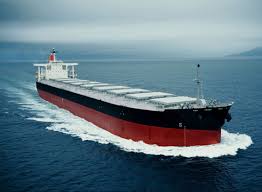18 August, 2011, Vanguard Newspaper Editorial, Lagos – TO the average Nigerian who dreads the disruption petroleum products scarcity inflicts on him; it does not matter whether Nigeria imports the products from Zinder in Republic of Niger or Zinguichor in Senegal. The key thing is availability.
However the announcement that Nigeria would be importing fuel from Zinder by December 2011, again uncovers lies governments have told over the years about maintaining our refineries or building new ones. How long does it take to build a new refinery?
Why is drought-stricken and landlocked Niger able to build one and Nigeria cannot? What is the next excuse about the continued importation of products?
Construction of the refinery in Zinder began in late 2008, the same time a Chinese company commenced exploration of oil in Niger. The equipment for the refinery was imported through Nigeria and freighted to Zinder, more than almost 1,500 kilometres away. Yet, Niger, one of the poorest countries in the world, in fact 167th out of 169 countries, has a working refinery that will export products to Nigeria.
It shows how our neighbours are exploiting the thoughtlessness of the Nigerian leadership. This is only the beginning. Mahamadou Issoufou, President of Niger, proudly announced the development at State House, Abuja. Imports from Zinder would ameliorate the sufferings of residents of Northern Nigeria.
Zinder is only 240 kilometres from Kano, the commercial hub in the North, which itself is about 442 kilometres from Abuja. A refinery in Zinder is for the Nigerian market and not for Niger with a projected local consumption of 8,000 barrels crude equivalent daily. It will not be out of place to expect expansion of the Zinder refinery to meet Nigerian demand.
Niger just out-smarted Nigeria again. Our use of the River Niger from which we generate electricity is at the mercy of Niger which ever so often threatens to build another dam on it, a threat which when executed could limit water for our hydro-electricity plants in Kainji Dam.
Niger gets about 90 per cent of its electricity from Nigeria under generous terms of the Nigeria-Niger Joint Commission yet Niger is pressing ahead with the Kandaji Dam project due for completion in 2013. Maybe by then, Niger will start exporting electricity to Nigeria.
Those who expected Niger’s oil explorations would generate revenue for Nigeria since Niger would export the crude through our ports have been proved wrong. Niger, instead, would earn foreign exchange from Nigeria. It may never export a barrel of crude, as its production levels may never meet Nigeria’s demands.
Mr Odein Ajumogobia, as Minister of State for Petroleum Resources, had told Nigerians in 2009 that Nigeria planned to source refined petroleum products from Senegal. By December 2010, the Federal Government sealed a deal with Société Ivoirienne de Raffinage, the Ivorien refiner, to exchange Nigerian crude for finished products. Now it is Niger.
We are not only concerned about the lost employment opportunities of Nigeria importing what it can produce. We are scandalised about how quickly Niger, without willing external financiers, except China, can complete the refinery in Zinder, a year ahead of projection.
There are strategic implications in Niger, which already supplies most of Nigeria’s meat, and contributes greatly to the poor security situations along its borders in being responsible for meeting the petroleum needs of a vast section of the country. It can always hold Nigeria to ransom, in the same way Russia’s neighbours arm-twists it over oil and gas export lines.
Internally, there are implications in an expected reversal on availability of fuel. The North will not depend on the shenanigans at our ports and unsafe pipelines to get its supplies. Fuel scarcity may be worse in the oil producing South. Dishearteningly, government has no plans to revive the refineries – it has opted for importation to continue the wastes of the past years currently estimated at $10 billion annually.
More importantly, Niger’s importance in oil production, leaning on Nigeria’s inefficiencies, will further diminish the country as a global energy power. Niger has found its niche in Nigeria, it will exploit it, thanks to leaders who see nothing wrong in leading their country to complete dependence.




